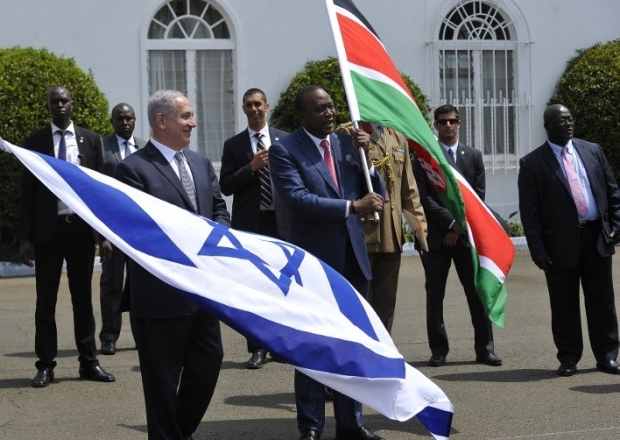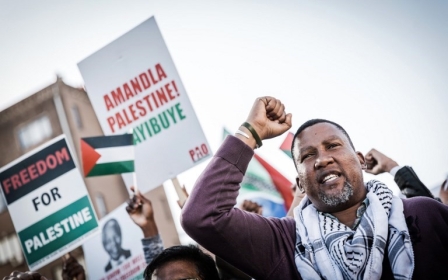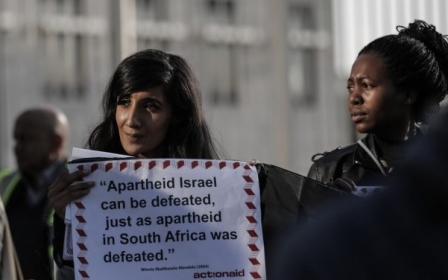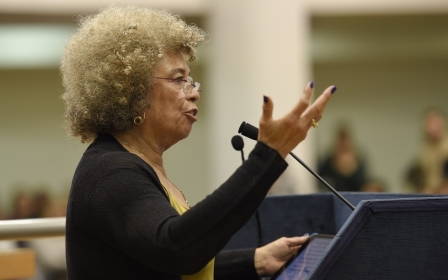Ghana's support brings Israel a step closer to African Union seat
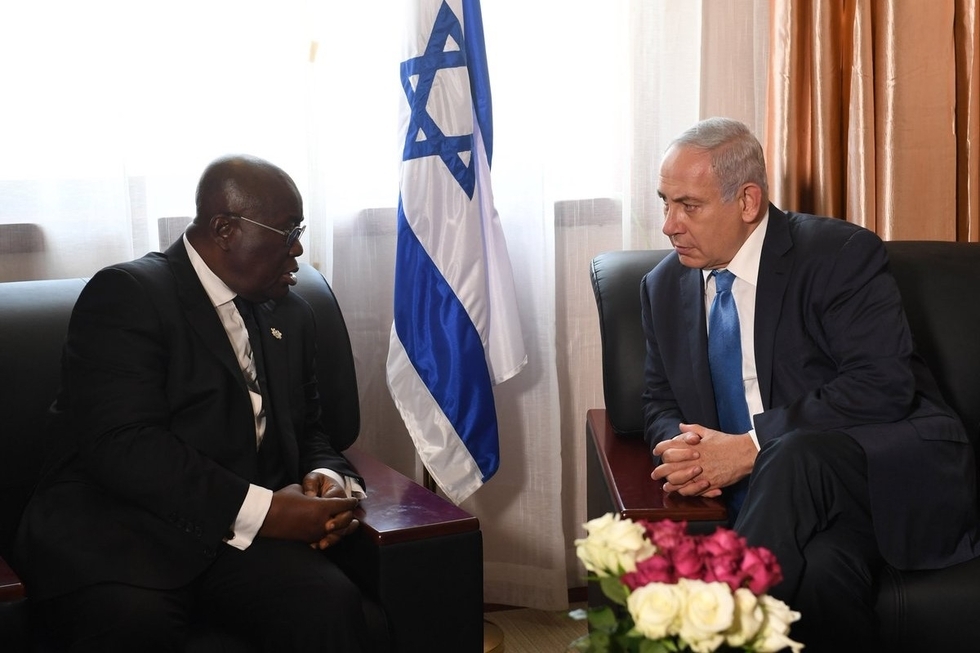
On a recent visit to Israel, Ghana's foreign minister confirmed that her government would be assisting Israel to gain observer status at the African Union (AU).
Accra becomes the latest African nation to publicly back Israel for a spot at the continental body. Kenya and Ethiopia have already endorsed Israel’s bid to join as an an observer member when the vote takes place in February.
Members with observer status at the AU have the opportunity to access all member states as well as address them as a bloc. This serves as an opportunity to strengthen political ties with the continent. One of the reasons why Israeli Prime Minister Benjamin Netanyahu has been pushing for observer status is to counter Palestine's influence to the AU which has consistently taken a more pro-Palestine stance.
Palestine was granted observer status in 2013, while Turkey was granted the same in 2005.
Return to the fold
According to a statement issued on 6 November, Ghanaian Foreign Minister Shirley Ayorkor Botchwey “assured” Avraham Neguise, chairman of Israel's governing coalition party, Likud, that her country would support Israel’s “return to the fold of the African community”.
“The last couple of years have seen Israel and some nations in Africa working hard to put the past behind them and forge ahead with optimism by renewing their bond of friendship,” the statement said.
There is a lot of effort being put into portraying Israel as a caring, God-fearing nation that cares about Africa and we know that they don’t
- Ras Mubarak, Ghanaian MP
Israeli officials claim that their interest in Africa is driven by mutual benefit in reference to trade, development and security. These pursuits have also characterised their outreach to countries in Latin America and South Asia, particularly India.
Israel’s determination to forge new friendships with African nations is however predicated on gaining support for its policies or backing at the UN.
Whereas African sympathies have traditionally rested with the Palestinians, today, many African leaders are more inclined to prioritise self-interest woven with a more pragmatic approach to foreign policy. This has translated into a more public working relationship with Israel that has long existed in the shadows.
What Ghana really stands for?
Ghana was among the first African countries to recognise the new state of Israel. The endorsement from an African heavyweight at the time set the tone for other partnerships on the continent. “The Israeli mission in Accra is said to be so influential as to be the envy of the entire diplomatic corps in the capital,” The Times of India commented in 1958.
Ghana, like so many other African nations, severed ties with Israel in 1973 following the Arab-Israeli war, but basic ties continued.
Pockets of dissent exist [in Ghana] but they have been mostly rubbished by the mainstreaming of pro-Israel sentiment as well as the country’s reputation for providing much needed technical prowess
It was only in 2011 that Ghana renewed full diplomatic ties with Israel. Despite the almost-four-decade-long break, public perception towards Israel remained evidently positive owing to the influence of the Christian evangelical movement in the country.
Israel’s liberal use of Christian evangelicals to spread Zionist and Israeli propaganda in the United States has also been a method to win support, sympathy and loyalty towards Israel in Ghana. Pockets of dissent exist but they have been mostly rubbished by the mainstreaming of pro-Israel sentiment as well as the country’s reputation for providing much-needed technical assistance.
In April, one of the country’s few outspoken critics of Israel, Ras Mubarak, a member of parliament in Accra, was denied entry into Israel. He had been scheduled to deliver a lecture in the occupied West Bank but was turned away at the border in Jordan. Mubarak told Middle East Eye that Ghana’s decision to support Israel “flies in the face of what Ghana stands for”.
“This [Ghanaian] administration has voted [at the UN] with Palestinians so I am not sure why the foreign ministry has supported Israel for an observer seat … it will be something I will be bringing up in parliament,” he said.
“Israel is making a lot of overtures. The speaker of parliament, high-level government officials and members of parliament have all gone to Israel. There is a lot of effort being put into portraying Israel as a caring, God-fearing nation that cares about Africa and we know that they don’t."
Relations between Israel and Ghana have only powered on. In August, Israel appointed a new ambassador to Accra and opened a new commercial office within the embassy itself.
Charm offensive
Ghana is not the only African country Israel has been cosying up to of late.
Israel has invested in an all out charm offensive on the continent over the past decade following on the tracks of its entrepreneurs that have already built illustrious businesses in Africa.
Since becoming prime minister, Netanyahu has travelled to the continent three times and has described the renewed relationship with African nations as a “strategic goal” of his government. He also became the first leader from a non-member state to address leaders at the Economic Community of West African States (ECOWAS) summit in Liberia.
Here he tried to persuade West African leaders to vote to make Israel as an observer member to the AU. “It’s definitely in our interest … I fervently believe that it’s in your interest too.”
Israel has repeatedly overemphasised its improved relations with the Arab world (read: Saudi Arabia and United Arab Emirates) to convince African nations to shift their approach, or be left behind.
Netanyahu has also sought to make friends with countries with sizeable Muslim populations in order to dilute their support for the Palestinian cause.
A step closer
In 2016, the Republic of Guinea, a Muslim majority country in West Africa, became the latest country to renew diplomatic relations with Israel after it severed ties in 1967. In May, Tanzania opened an embassy in Tel Aviv. Two months ago, Rwanda and Israel indicated they would be opening embassies in each other’s country.
Last month, it was reported that an Israeli delegation had travelled to Chad to discuss the possibility of renewing ties. Chad and Israel haven’t had official ties since 1973.
When the US opened its embassy in Jerusalem earlier this year, many of United States’ allies decided against attending the inauguration. But 11 African countries sent representatives, in what would have been unthinkable a decade ago.
Israel has been eyeing an observer seat at the AU for some years. And it is a topic that might be raised in February when the member nations of AU meet in the Ethiopian capital, Addis Ababa.
Though it is still not a foregone conclusion, securing Ghana’s support will take it one step closer.
- Azad Essa is a journalist based in New York City.
The views expressed in this article belong to the author and do not necessarily reflect the editorial policy of Middle East Eye.
Photo: Ghana's president, Nana Akufo-Addo, with Israeli Prime Minister Benjamin Netanyahu (Twitter).
This article is available in French on Middle East Eye French edition.
New MEE newsletter: Jerusalem Dispatch
Sign up to get the latest insights and analysis on Israel-Palestine, alongside Turkey Unpacked and other MEE newsletters
Middle East Eye delivers independent and unrivalled coverage and analysis of the Middle East, North Africa and beyond. To learn more about republishing this content and the associated fees, please fill out this form. More about MEE can be found here.



